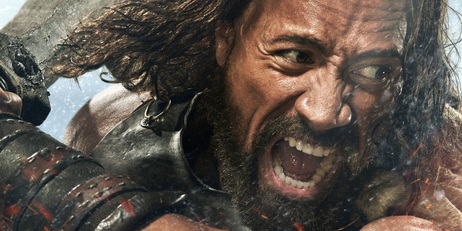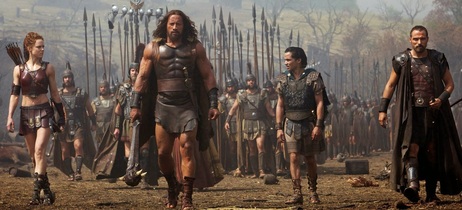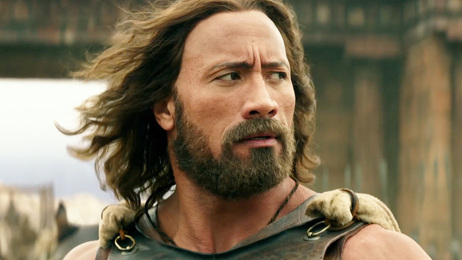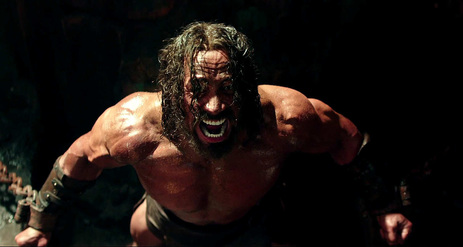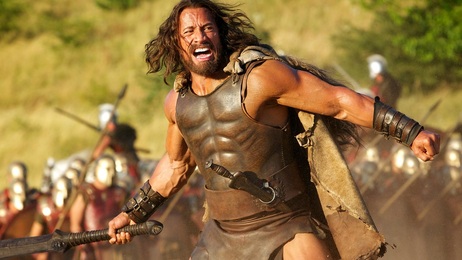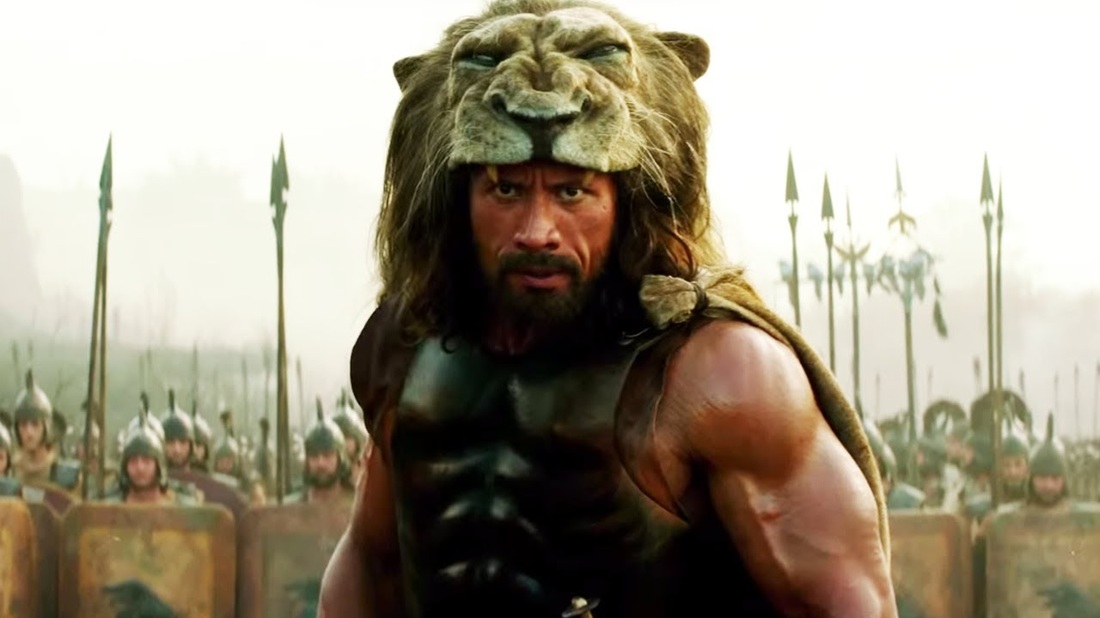|
|
It takes the strength of ten men to endure Brett Ratner’s gleeful renovation of Hercules. After a few lesser takes at envisioning the legend on the silver screen, including the critically scorned The Legend of Hercules (2014) released earlier this year, Ratner’s rowdy romp is mostly fluff with the occasional playful moment. Dwayne Johnson dons a loincloth and flaunts a mass of muscle as the barbaric brute Hercules. Undeniably, he has brass balls on the battlefield, but Ratner’s latest offers little more than bargain-basement entertainment with few thrills.
A series of twelve gruelling and folksy labours establishes the might of the legendary Hercules, the son of Zeus. These challenges pit the mop-haired demi-god in a string of fierce brawls against a roster of mystic creatures, or so the story is told. Ratner does not dwindle on the make-believe however, and tucks straight into the sword and sandal affairs with much clamorous warmongering. After a bit of pillaging for loot, Hercules and his outfit of ragged misfit mercenaries embark on a humble quest to dethrone a tyrannical leader. Alluring burlap-bags of coinage coax the gang into a serious conflict between the King of Thrace and a wicked warlord. Meanwhile, Hercules’ solid poise begins to fracture as he is haunted by his past life. With a lofty ratio of less blood than iron, the numerous action sequences have a dirtied charm that bodes well for a genre in revival. Indeed there is much raucous clashing of metal-on-metal as Hercules gracelessly bashes at crowds of faceless enemies, leaving the ground around him littered with bludgeoned cadavers. The shared sense of bravery bestowed on Hercules is best epitomised by the solemn Maximus (Russell Crowe) in Gladiator (2000). A hearty moral is throbbing at the heart of both tales of heroism and conquest; Hercules, however, lacks any genuine sense of threat. The tale somewhat ironically imparts a morsel of wisdom about the woes of materialism; it is all about greed, gold and glory (and a smidgen of godliness for good measure). The herculean budget masses at $100 million and this lends to the festiveness of Brett Ratner’s frenzied circus of a film, where compassion is substituted with blithering chaos. And whilst it may not be as lacklustre as the botched lobotomy of the Conan the Barbarian (2011) remake – a film where its soul is as barren as its arid desert landscapes – Hercules does become trivialised by its ridiculousness. The film does oddly debunk its own premise: Hercules is a mere myth. Ratner rebuilds the fable as a more modern rendition where everything is barefaced, brash and brutish. Hercules is hostage to slice-and-dice carnage on the battlefield, its larger-than-life envisioning is gleeful and silly and moments are rendered spectacular with soaring set pieces and grizzly fights aplenty. It is also playfully childish as Dwayne Johnson drips with sweaty machismo, pounding, thumping and jousting his many foes with an arsenal of rounded weaponry and bare-knuckles, all to a score of unruly howling and growling by the film's many men. Dwayne Johnson fiercely personifies the fabled legend and is clearly enjoying himself. He sports an amiable grin under his dishevelled beard; he is a mountain of musculature with an even grander charisma. As they straddle bleak catacombs to various, swooping locales, Hercules is the most charming of his band of merry men. Johnson is surrounded by a patchwork of frustrating character types. His trusted thief and henchman Autolycus (Rufus Sewell), for example, often croons with unfunny and awkward jibes to lighten the tone. Despite Ratner’s attempt to peel back the curtain of the Oz-like demi-god to reveal a vulnerable and damaged man via a harrowing past life, it is the immortality of Hollywood’s action hero that compromises any empathy for the supposedly distressed Hercules. His immortality is, however, actually somewhat necessary in preserving the myth as much as the moral. |

